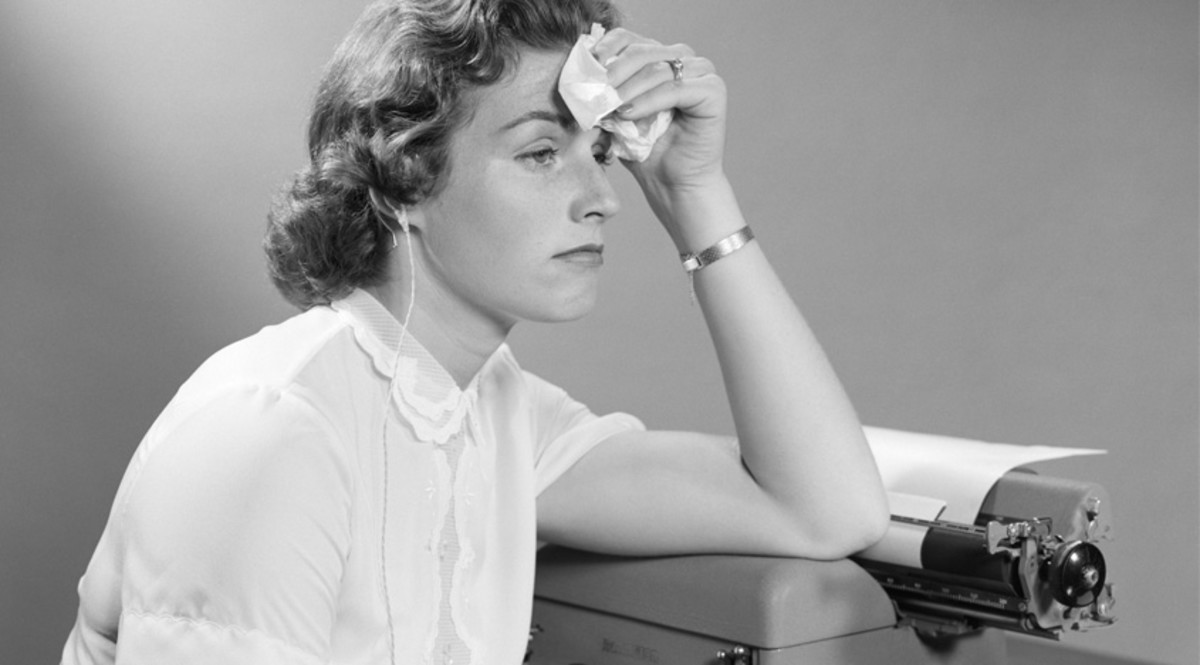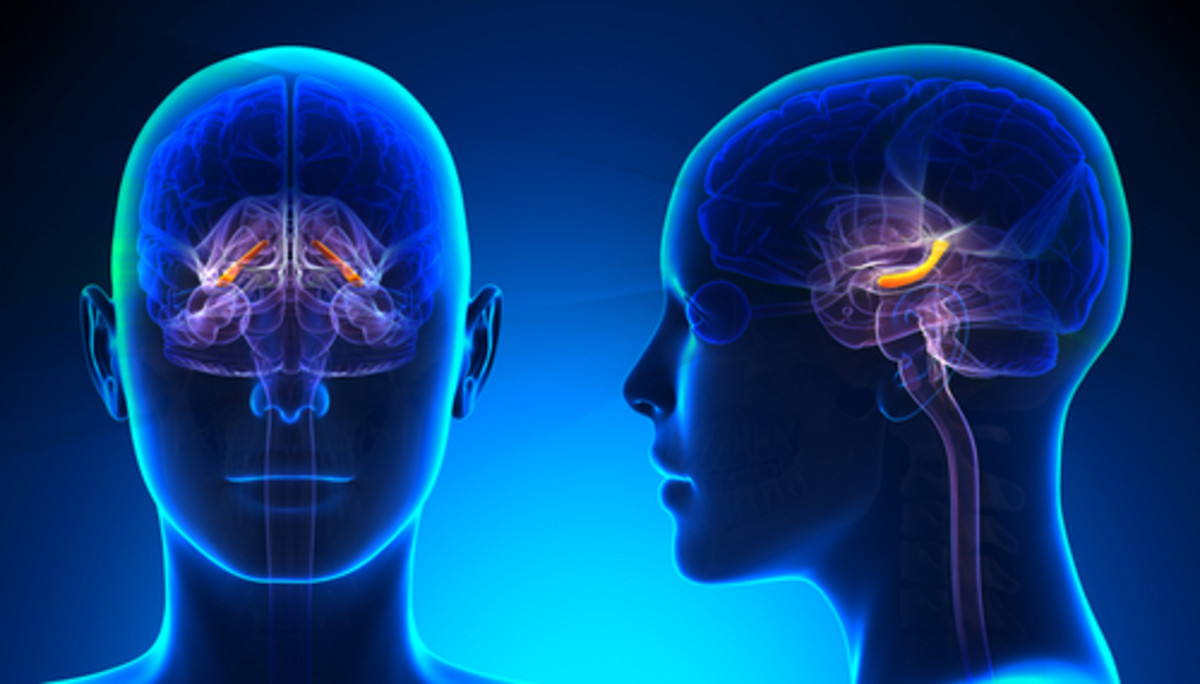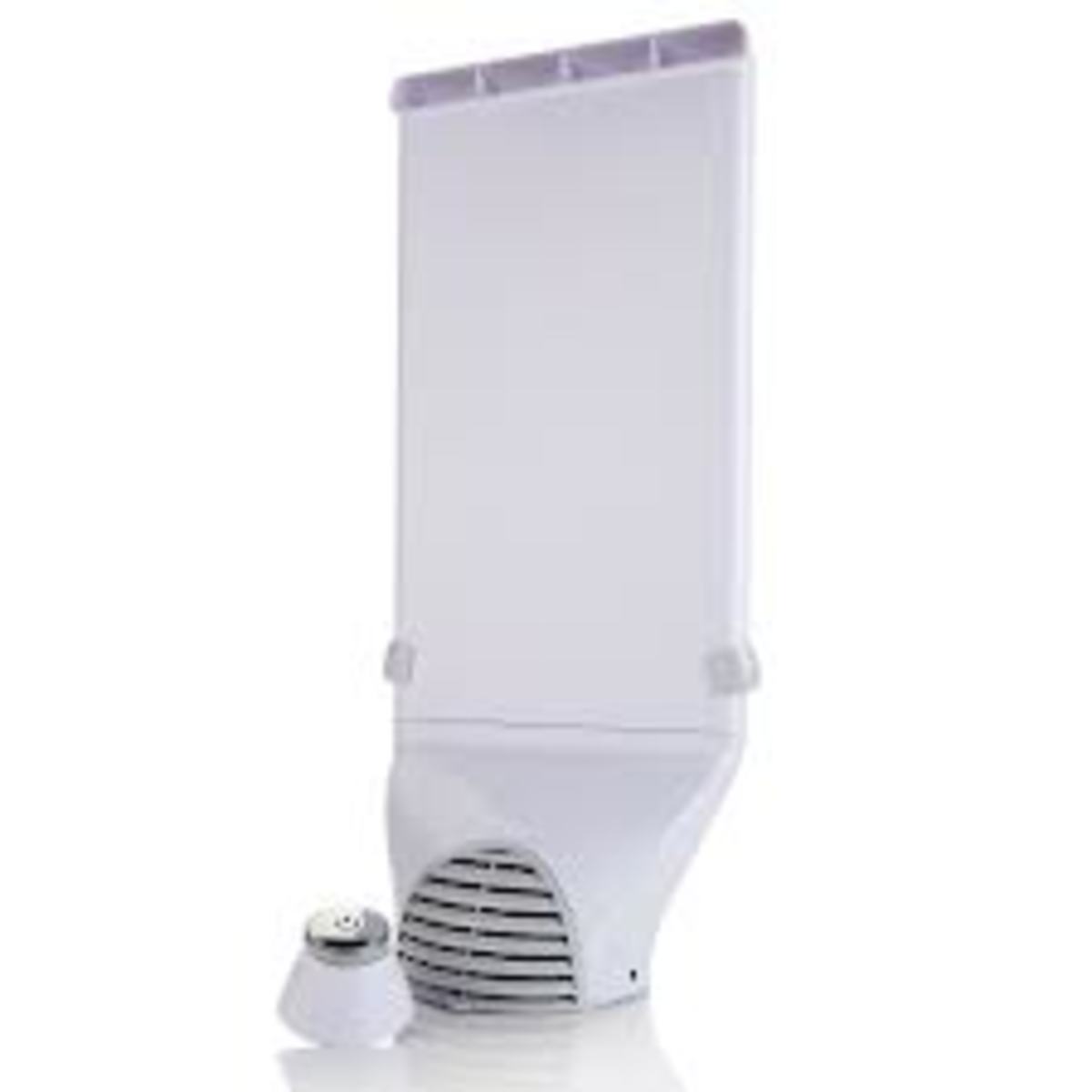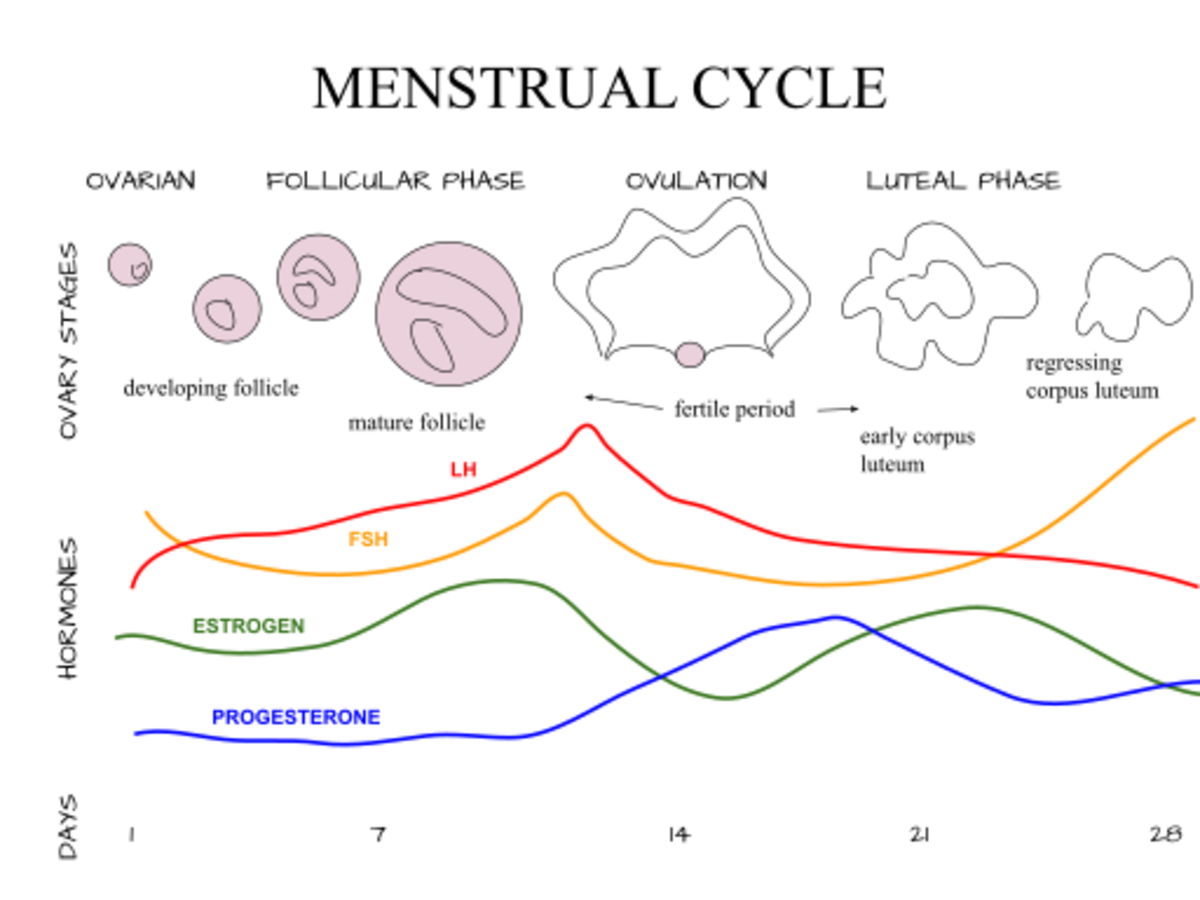Menopause - A Natural Approach
Discussion of Menopause
I feel I must declare a lack of personal interest in this subject; I am never going to suffer from menopausal symptoms, for the extremely simple reason that I am male. However, problems during the menopause are common enough that I feel obliged to try and cut through the fog surrounding the subject of menopause.
First of all, let me say one thing. Menopause is not a medical problem. That statement may sound ridiculous, but a process that every woman lucky enough to reach the required age goes through is almost by definition not a medical problem in and of itself, any more than puberty or pregnancy is. One exception might be early menopause triggered by other medical problems or procedures; for example, total hysterectomy. However, many women (at least in Western countries) do have various medical problems associated with the menopause; hence this article.
Menopause is a very unusual experience for female mammals, which of course women are although they are also much more than that. Most female mammals remain fertile, though to a declining degree, throughout their lives. Biologists differ about the reason for menopause in humans, but one theory is that in a primitive society a child would be much more likely to live to adulthood if Grandma was around, without children of her own to look after, to look after the child when his or her mother was out gathering nuts and berries (for example). The existence of menopause may also have something to do with the fact that humans live a remarkably long life compared to other animals, and this does have an effect on the likelihood of various genetic and congenital disorders in children of older women.
Please note that this really applies more in primitive societies (in which people have lived for more than 95% of history) far more than to modern ones; but in such a society a child with a congenital disorder is unlikely to survive. One way to ensure that such children are born less often is for the oldest potential mothers not to be capable of having children in the first place, and this is essentially what menopause is all about.
I feel that there needs to be some definition of terms here. “Menopause”, strictly speaking, refers to the time when menstruation stops because eggs are no longer maturing to the fertile phase. This time is often ill-defined; many women become rather irregular well before this time. However, what is colloquially called “menopause” refers to what doctors call “perimenopause” which is the time (often several years) leading up to this event. Some women have various hormone instability problems for some time after actual menopause and some also have problems (osteoporosis being an example) well after menopause as well. Most laypeople lump all this together.
Menopausal symptoms are almost entirely a Western problem, specifically Europe and the USA and also in places such as Australia and New Zealand with a basically European culture. Women in the developing world don’t often get menopausal symptoms, even if they are lucky and live long enough; but perhaps more surprisingly women in Far Eastern cultures such as China and Japan also rarely suffer symptoms at the menopause. So much so, in fact, that there is no term in Japanese for “hot flush”.
What Happens at Menopause?
Apart from the obvious (periods slowing down and eventually stopping) various other changes happen leading up to menopause. Most of them are hormone-related; production of various hormones such as oestrogen and progesterone in the ovaries reduce gradually, with some increase in production in such places as the adrenals and fat cells to make up some of the difference. Oestrogen and progesterone have other uses in the body than those related to fertility; so much so, in fact, that (a little-known fact) men have measurable levels of oestrogen. This also applies the other way around, by the way; women produce a certain amount of testosterone as well.
The reduced output of oestrogen from these other sources is sufficient, in most cases, for the non-reproductive functions of oestrogen. Problems with menopause are usually caused by a disturbance to this gradual change in physiology.
The symptoms often experienced during the menopause are related to fluctuations in hormone levels; ideally the level of oestrogen should be gradually reducing, but during this there are often wild short-term fluctuations that cause the mood swings, water retention and the dreaded hot flushes associated with menopause in the West. This situation is somewhat similar to that in women who suffer from PMT.
These fluctuations are encouraged by the modern diet that puts a great deal of stress on the endocrine system. Caffeine and large amounts of sugar stress the adrenals, which should be taking up some of the work of the ovaries in creating hormones. Consumption of typically Western food and drink high in artificial additives stresses the liver and leads to a mild deficiency in various vitamins and minerals; these problems are important because the liver is responsible for getting rid of surplus oestrogen and its metabolites, and various nutrients are needed to make hormones. In addition, the body needs fairly large amounts of essential fatty acids to make these hormones, too - and such fats are often deficient in a Western diet.
Finally, consumption of red meat often leads to hormonal disturbances because of the presence of trace quantities of steroid hormones (used to make animals gain weight faster) in such meat.
The symptoms associated with the menopause are made worse by a somewhat related problem with a completely different hormone system, the blood sugar control system that employs insulin and glucagon. Perhaps by coincidence, the blood sugar control system often starts going wrong at about the same time as menopause; as a matter of fact, men often start getting problems with blood sugar control at roughly the same time that women are going through the menopause - although, obviously, men don’t have to contend with menopausal symptoms at the same time.
Oestrogen Metabolism
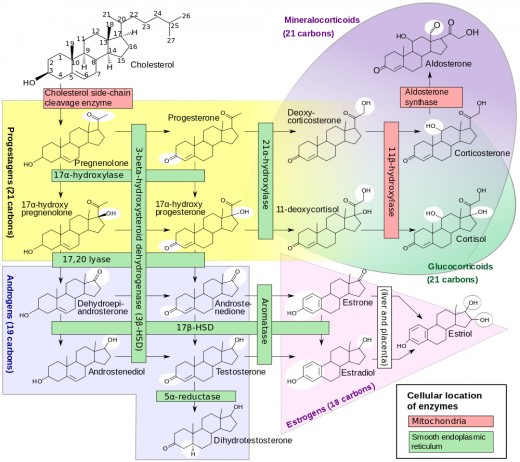
Natural Help for Menopause
Diet
Dietary changes that help with menopausal symptoms are mostly those that help with just about any other chronic problem. But for completeness, the idea here is to eat less additives and processed food, less sugar and refined carbohydrates such as white bread and white rice, less fried food, less red meat and more fish (particularly oily fish), nuts, seeds, vegetables and fruit. One dietary item that helps in the particular case of menopausal symptoms is soya beans and food made from them such as tofu and miso. The reason for this is described later.
Supplements
To keep the whole body in tip-top condition, it is a good idea to take a high-quality, high-strength multivitamin/mineral; this should provide most of the nutrients that help with menopausal symptoms. An exception to this is the rather little known mineral boron; this mineral helps (by means as yet unknown in detail) with the production and metabolism of steroid hormones such as oestrogen, progesterone and oddly enough vitamin D. Also important are calcium and magnesium; they are not particularly important for menopausal symptoms per se, but do help to slow down or stop the progress of osteoporosis - which many women suffer from during and especially after menopause. Boron at about 3mg per day, and calcium and magnesium at 1000mg and 500mg per day, are suitable for this.
Phyto-oestrogens
Phyto-oestrogens are a class of compounds, found in many different plants, which have oestrogenic activity in the human body. The plants that contain such compounds include red clover, black cohosh, Dong Quai and especially soya. This last is the reason why soya-based foods often help with menopausal symptoms, and is also thought to be one of the reasons for the rarity of menopausal symptoms in the Far East especially Japan.
Phyto-oestrogens are not identical to any of the oestrogenic compounds in the human body, and so have limited oestrogenic effect; the effect varies between the different plants, with soya extracts probably being the weakest and black cohosh being the strongest. This is actually a good thing, because every woman’s needs are different from the next. Weak compounds such as the ones in soya have more of a blocking effect on oestrogen, whereas the ones in black cohosh have more of a replacement effect. Unfortunately, it is quite difficult to work out which of the various plants is best in any particular case; so finding the right phyto-oestrogenic botanical is somewhat of a trial-and-error affair. The effect of all the phyto-oestrogenic herbs is to smooth out the wild variations that often occur at this time.
Oestrogen blockers such as those in soya help because, at times, a menopausal woman’s oestrogen levels are very high; soya helps block the effect simply because there are only so many oestrogen binding sites in body cells, and ones blocked with a weak compound are unavailable for the “real stuff”. However, at the other end of the cycle when oestrogen levels are low then the soya phyto-oestrogens are strong enough to smooth out some of the variations.
Sage
Sage has phyto-oestrogenic effects, but also has another specific effect; it inhibits the sweat glands and so helps specifically with hot sweats. You may feel hot, but won’t be running with sweat.
Dong Quai
Apart from its phyto-oestrogenic effects, mentioned above, dong quai also helps with the headaches and palpitations that also occur as menopausal symptoms. It also helps with menstrual cramping.
Agnus Castus (Vitex)
Agnus castus works in a rather different way from most of the other herbs mentioned here. It increases production of lutenising hormone by the pituitary, which in turn increases progesterone levels and therefore helps with some of the symptoms. Agnus castus is often used as a support for other botanicals, especially when mood swings are a factor.

